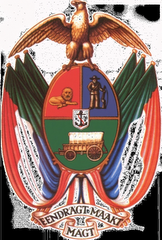Sheep Aids hits hundreds of farms
February 25 2008 at 07:22AM
By Karen Breytenbach
The Department of Agriculture has appealed to Western Cape sheep farmers to remain calm in the face of the spread to hundreds of farms of Ovine Johne's Disease, better known as "sheep Aids" because of the emaciation it causes.
The disease was first detected on 47 farms in Caledon, Ceres and Mossel Bay a decade ago, but has slowly spread to hundreds of farms, especially in the Caledon area and Southern Cape. Some cases were also reported in Cradock in Eastern Cape.
But the Western Cape Agriculture Department has moved to reassure farmers that their interests would be protected. "The situation is under control, we have vets working on it full-time," said spokesperson Alie van Jaarsveld.
Click here!
'The situation is under control'
Johne's Disease (OJD), or paratuberculosis, is a chronic and contagious disease found worldwide, characterised by persistent diarrhoea, weight loss, debilitation and eventual death.
It is considered a problem in South Africa because it is hard to detect and can cause losses of up to 20 percent of sheep in very infected flocks.
During a 1996/7 survey of 1 718 farms, when 47 showed infection, tests were ineffective, causing half of infected farms to skip detection.
Van Jaarsveld said an official count of sheep affected was not available yet, but the mutton market could suffer if it spread further and it was decided on slaughtering.
For now, the Small Stock Health Advisory Body has urged that heavily infected areas be declared "OJD Control Areas" to allow free movement of live
animals within these confines, but to prevent their transportation to the outside world, except for slaughter.
'We have vets working on it full-time'
The body also advised farmers to vaccinate their sheep and announced the requirement of vendor declarations on their flocks' OJD status.
OJD surveys would be conducted in areas that had not so far come across infection.
Van Jaarsveld said the enforcement of the Animal Disease Regulations, requiring the isolation and slaughter of infected animals and the isolation and testing of all animals in contact with them, would hit sheep farmers hard.
"In an effort to minimise this impact, but at the same time to prevent spread of this disease to uninfected flocks and areas, the veterinary services... launched an intensive round of workshops and meetings with the view to formulate a policy to address this situation," Van Jaarsveld said.
This led to the formation of the advisory body, which will present its final policy proposals to Agriculture Minister Lulu Xingwana and provincial authorities for acceptance and promulgation into law.
The provincial department would also provide funding for post-graduate research on OJD.
# karen.breytenbach@inl.co.za
Monday, February 25, 2008
Subscribe to:
Post Comments (Atom)







No comments:
Post a Comment